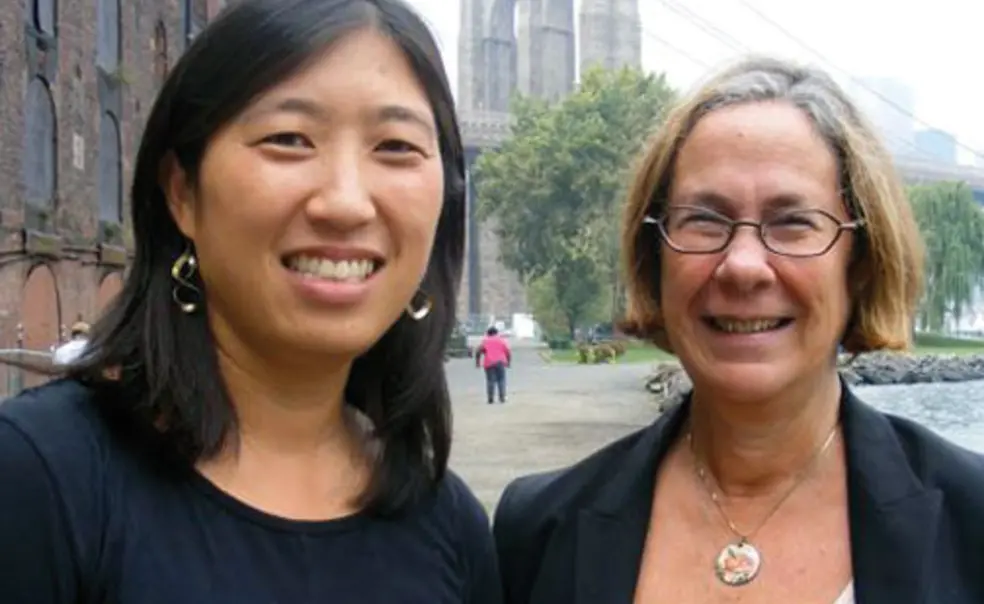Alumni Profile: Sherry Leiwant ’72 and Yolanda Wu ’89 on work-life balance
Taking care of a sick child is straightforward when one parent doesn’t work. But what if both parents have jobs? If you’re among the lucky 30 percent of Americans whose employers let workers use paid sick days to care for family members — you’re set. But what if you’re among the other 70 percent? Most likely, you’re stuck.
Sherry Leiwant ’72 and Yolanda Wu ’89 are trying to change that. In 2005, the former NOW Legal Defense and Education Fund attorneys co-founded a New York-based legal-advocacy organization, A Better Balance, to get workplaces to incorporate policies that make it easier for employees to care for family members — an issue that has become increasingly urgent since more women than ever are in the workforce. Many labor laws were written when a small minority of wives worked outside the home, and the laws no longer reflect the growing likelihood that no parent is at home to deal with family responsibilities that come up during work hours.
A Better Balance is helping to draft government legislation and influence corporate change on policies such as paid sick leave, paid family leave, and more flexible workplaces. A paid-sick-leave law the organization drafted for the city of Milwaukee passed by a landslide this fall. A Better Balance also drafted six of the seven state sick-leave bills introduced this year. None of those was voted into law, but Leiwant says that is typical: In trying to create social change like this, it often takes several legislative sessions before a law finally gets passed.
The ramifications of workplace inflexibility became clear to Leiwant, a history major, who was working on issues affecting poor women at the Legal Defense and Education Fund at the same time that she — a mother of three — was struggling to balance work and family demands. Wu, a politics major with a certificate in women’s studies, says her intellectual grasp of these issues solidified into a practical understanding once she had children of her own.
Leiwant and Wu say the policies they’re advocating not only are the right things to do, they also make good business sense. According to a study by Harvard and McGill universities, 145 countries guarantee paid sick leave, and according to the World Economic Forum, of the 20 most productive economies in the world, the United States is the only one that doesn’t. Some industries are starting to grasp the costs of sticking to rigid work demands. Blue-chip accounting firms, in particular, have been pioneering new arrangements after noticing that talented women they’d spent years training were leaving because of the absence of flex-time or telecommuting opportunities that would have made it possible to balance work and family.
Family-friendly policies help the worker, Leiwant says, “but they also help society in general if you’re not losing people who could make contributions.”












No responses yet